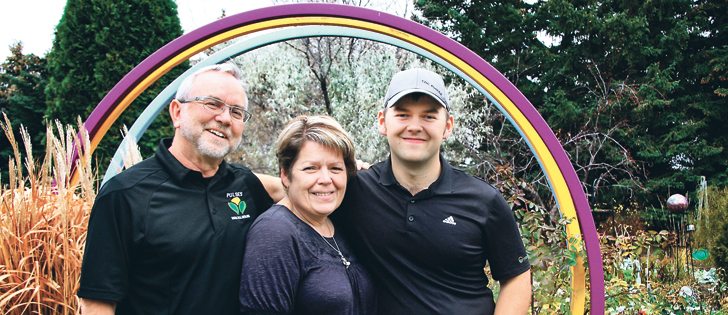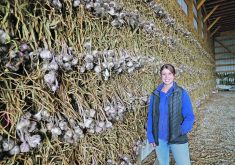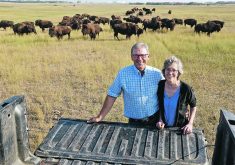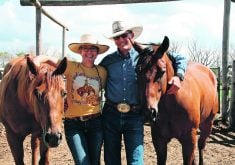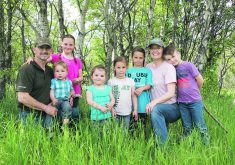RICETON, Sask. — Lee Moats recalls the day he sold the farm’s tillage equipment and bought a no-till drill.
“My dad was the most uncomfortable I’ve ever seen him,” he said.
Going from discers to a minimum tillage system was a huge step in 1990, but it was also a logical move on a farm where conservation and innovation have always been top of mind.
His grandparents settled the heavy clay land southeast of Regina after arriving in Saskatchewan in 1910.
In 1938, they brought a diesel tractor to the farm to join the horses and steam power. It was a huge innovation for the time and it still holds a place of pride on the farm.
Read Also

Fuel rebate rule change will affect taxes and AgriStability
The federal government recently announced updates to the fuel rebates that farmers have been receiving since 2019-20.
Lee’s parents took over the farm in 1950.
“My grandfather made his living on the richness of the soil,” Lee said. “My dad started using fertilizer.”
The switch to no-till when Lee and his wife, Laurie, took over in 1990 also came with a shift to a canola-winter wheat-red lentil rotation on what is now 2,700 acres.
“Our soil has become healthy,” Lee said. “It’s a system that if you’re thinking about the prairie that my grandfather broke, we’re trying to emulate that.”
He said his parents were conservation oriented. Technological advancements in agriculture made it possible for him to take that to another level, and he understands that his son, Joshua, will likely take that even further.
A plant ecology course while studying at the University of Saskatchewan cemented Lee’s beliefs and desire to work in conservation.
He became a provincial agricultural rep, starting in Rosetown where he met Laurie, then moved to Moose Jaw and Regina.
In 1989, he moved to Ducks Unlimited Canada where he spent 20 years.
“This was a whole different take on conservation,” Lee said.
He saw a chance to take the objectives of a conservation organization and farmers, which sometimes conflict, and make them complementary.
“I am absolutely certain that if we in agriculture don’t find a place for biodiversity, that we’ll have society inflict its will on us,” he said, looking back on his time at DUC.
“Agriculture is the solution, not the problem.”
Lee was growing winter wheat before he joined DUC but his work there convinced him that it was a better way to meld annual cropping and duck habitat.
The organization’s promotion of winter wheat has been successful but not as successful as Lee hoped.
“Farmers need strong motivations to want to change,” he said, citing fusarium issues in spring wheat and durum as a reason to look at alternative crops.
That’s where the Moats’ son, Joshua, who plans to maintain the family farm, comes in.
He is the seed portfolio co-ordinator at FP Genetics, where hybrid fall rye is proving to be a winner. It was the highest yielding crop the Moats’ have ever had and they plan to add it to their rotation.
He, too, says sustainability is key.
“We need to be economically sound but there’s a level of care that probably needs to be emphasized more,” Joshua said.
They use Greenseeker’s crop sensing technology to more effectively manage inputs, and this year they straight cut almost all their canola.
Lee described Laurie as the head of finance for their incorporated farm.
She serves as the bookkeeper, and also seeds, swaths and combines.
“It was good to raise our kids here,” she said. “There is always something to do.”
Lee said the ultimate measure of sustainability is whether the succeeding generation wants in. Their daughter, Morgan, is pursuing music.
“We’ll know our farm is sustainable on all fronts when Joshua takes over,” he said.
Lee was recently re-elected to the board of Saskatchewan Pulse Growers and is the current chair of Pulse Canada.
“I’m still very excited about the potential of pulses,” he said, but issues of grain transportation and other public policies also keep him involved in the organization.
Both Lee and Joshua are on the Riceton volunteer fire department. Lee is president of the Cross Country Co-op and on the recreation centre board.
Joshua said he can’t imagine growing up in any other place.
“I feel a strong urge to protect this place and make it stronger.”


